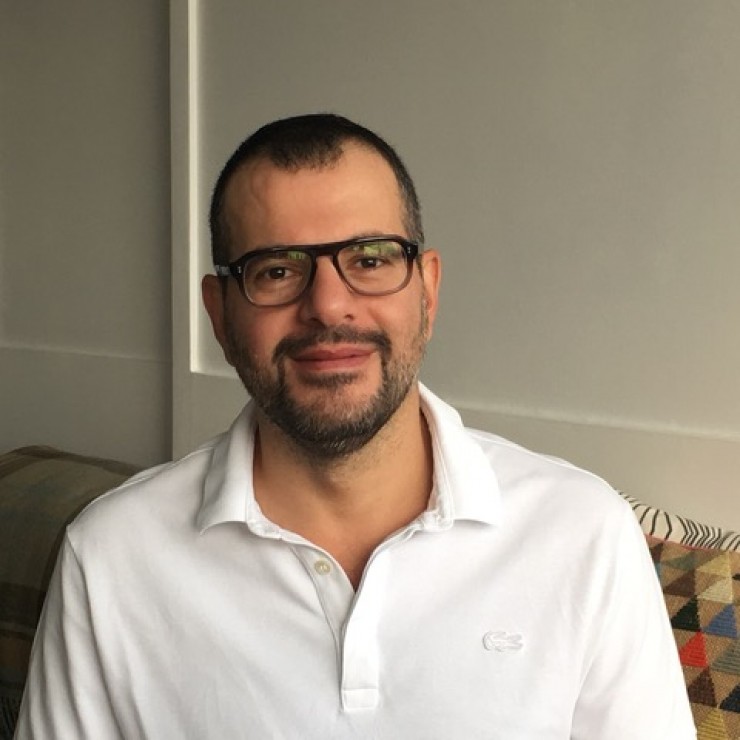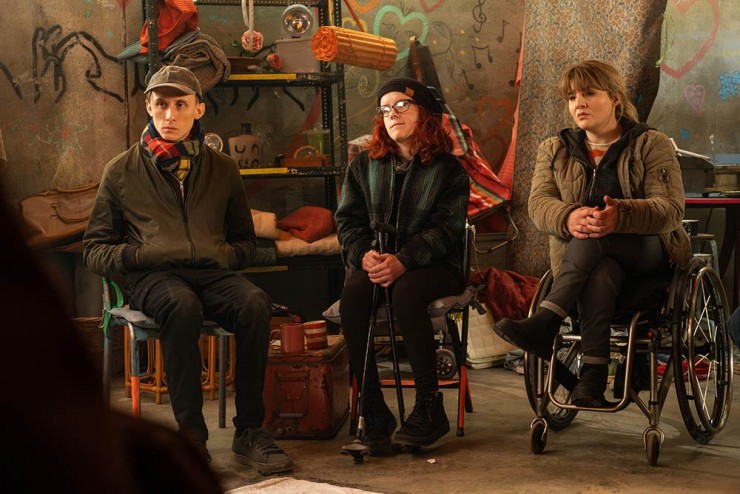Writer Jack Thorne has co-founded a pressure group to get TV to invest in addressing the structural inequality in an industry that he says has “utterly and totally failed disabled people”.
His ambition is to establish a dedicated fund to lobby to make every space inside studios and outside facilities accessible, and to establish a blueprint for new buildings to follow suit, as well as calling for 'access co-ordinators' on each set that offer disabled people a duty of care comparable to what intimacy co-ordinators have brought to drama shoots.
Established with Genevieve Barr, who starred in Thorne's Channel 4 drama The Accident, and Katie Player, a line producer who worked on that show plus previous C4 show Kiri, the group, Underlying Health Condition, has been surveying the industry over the past eight months in a bid to deliver meaningful change.
'Era of ableism'
Detailing the plans in his MacTaggart speech at the Edinburgh TV Festival, Thorne said: “This fund will cost us comparatively little as an industry and yet make a huge difference to getting those percentages up behind the scenes.
“We need these spaces to be truly inclusive so that never again will people will be crawling across the floor, never again will people be denied a meeting because of lack of access, never again will disabled people be excluded because of the spaces we work in.”
Thorne, who developed the chronic pain condition cholinergic urticaria at the age of 20, said the pandemic had ushered in “an era of ableism like I’ve never seen before”, with disabled people accounting for almost 60% of all Covid-related deaths.
Dubbing TV ‘the empathy box’ that taught him much about the world, he said the industry has a responsibility to help society do better on disability, which he described as “the forgotten diversity”.
“Actors I admire have taken roles they shouldn’t have; I’ve been complicit in some of those decisions,” Thorne said. “Producers have ignored disabled writers. Commissioners haven’t taken the opportunity to tell disabled stories. There are very few disabled people in front of the camera, and even fewer behind it.
Describing conversations with an executive who felt the disability aspect of one of his scripts was “dragging it down”, Thorne observed that until this year – after more than a decade writing for TV – none of his disability-centred stories, from C4’s Cast-Offs to BBC3’s Don’t Take My Baby, had secured on a full drama budget.
Empowering talent
Upcoming BBC drama Then Barbara Met Alan, which he co-wrote with Barr, was initially commissioned by the history department but secured full drama funding through a Netflix co-pro and additional BBC money.
Pointing to the “handful” of British dramas in the past 20 years with a disabled lead, Thorne said: “The problem is, we do not empower disabled talent, and when we do - we do not value the stories they tell. And this is still an industry in which disabled people aren’t employed to tell disabled stories.
“It’s all quite piecemeal, it’s not undercut with serious thought, it frequently relies on disabled makers being brave and putting themselves in uncomfortable situations and – most importantly - it’s not fast enough.”
Thorne also took aim at the government's "damage" to the Access to Work scheme, which can take months for companies to apply for and get approved, by which time a production has already wrapped and freelancers have ended their short-term contracts.
He described situations of disabled writers invited into writers’ rooms only to be been unpaid. "They have been asked to pay for their own support, where commissioners and producers become fixated on their disability and not their range and talent, where they’re castigated and patronised, where they’re made to feel like they’re the one that’s made the situation uncomfortable."
Moreover, he said, TV must reflect the complex range of disabled experiences rather than relegate them into “heroes or victims” and urged people to “be inquisitive” in speaking about their experiences - “ask the questions they’re not asked".
He added: “Talking about disability is scary; I still make mistakes in terms of how someone’s impairment should be discussed. But as a result of that fear, the complex becomes simple. And TV’s greatest power is when it runs towards a complexity, not away from it. “
He said drama needs to catch up with entertainment and comedy, where shows such as BBC3’s Jerk and Channel 4’s The Last Leg have broken the mould.
“Drama needs to walk to the same beat,” he said. “There is a difference between disabled stories and stories about disabled people and we need both and we need those people to be people first and disabled second, because that’s the reality they live in. “
Quotas
Thorne is in favour of quotas as a means to improve representations of disability, saying these would “fundamentally alter the stories being told”.
In comparing the difference that the Black Lives Matter movement has made to casting conversations with BAME talent, he said “the conversation on disability representation is nowhere near as advanced.”
Describing himself as a “coward” for some of his previous failures to address the issue head-on, Thorne said TV was uniquely positioned to address people’s tendency to look away.
“TV makes you look,” he said. “And eyes are needed. Because if we don’t look, we ignore and we forget, and this last year – in fact the last ten years since the horror of austerity – has proved disabled people need eyes upon them. Need their stories being given value. TV has such value. We are here to celebrate it.
“But that value needs to be nurtured. By making visible what for too long has been invisible, change can and should happen.”After his speech, Thorne shared a detailed list of resources and further reading on a Twitter thread, which you can read here
- Watch Thorne's full speech here


